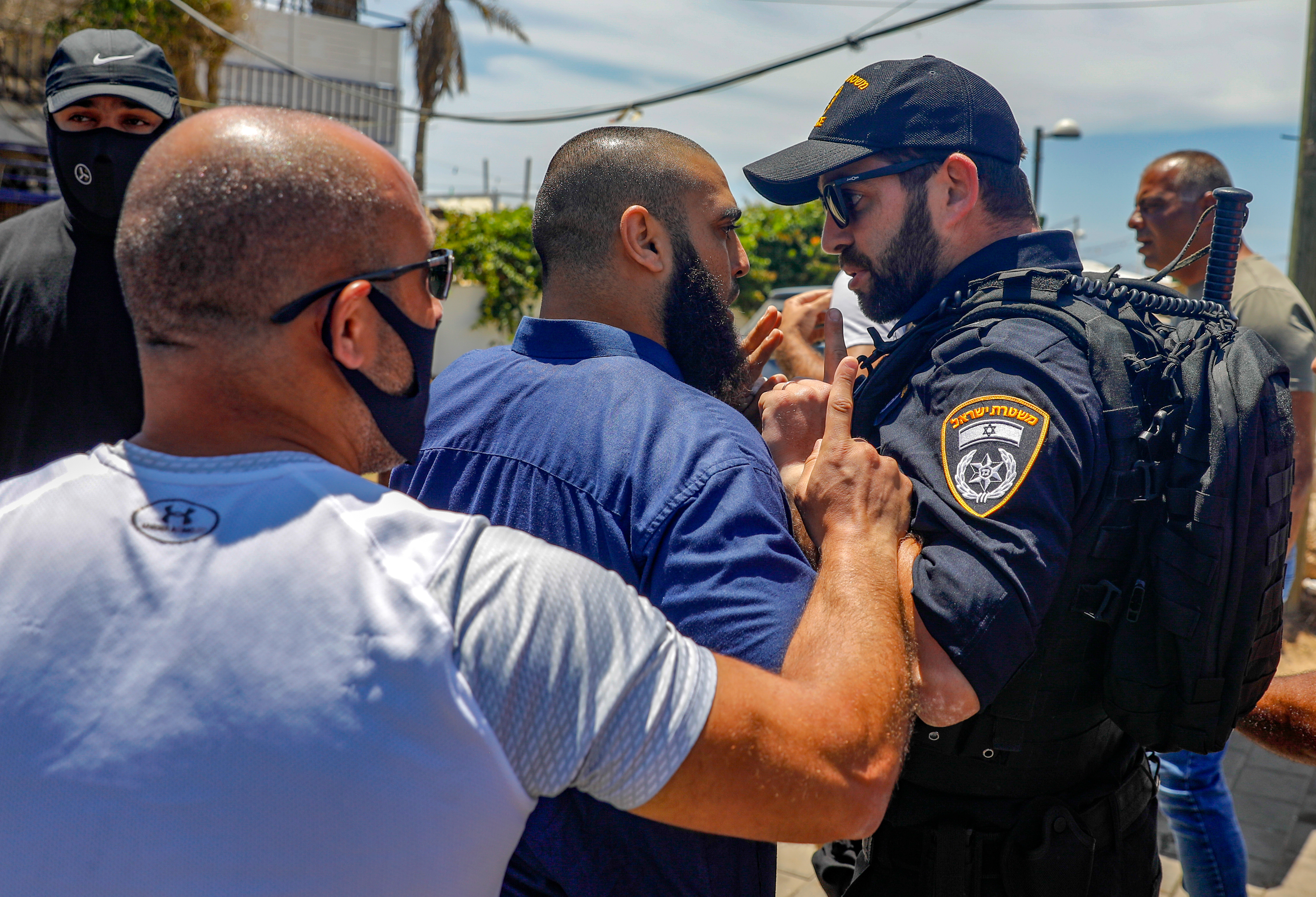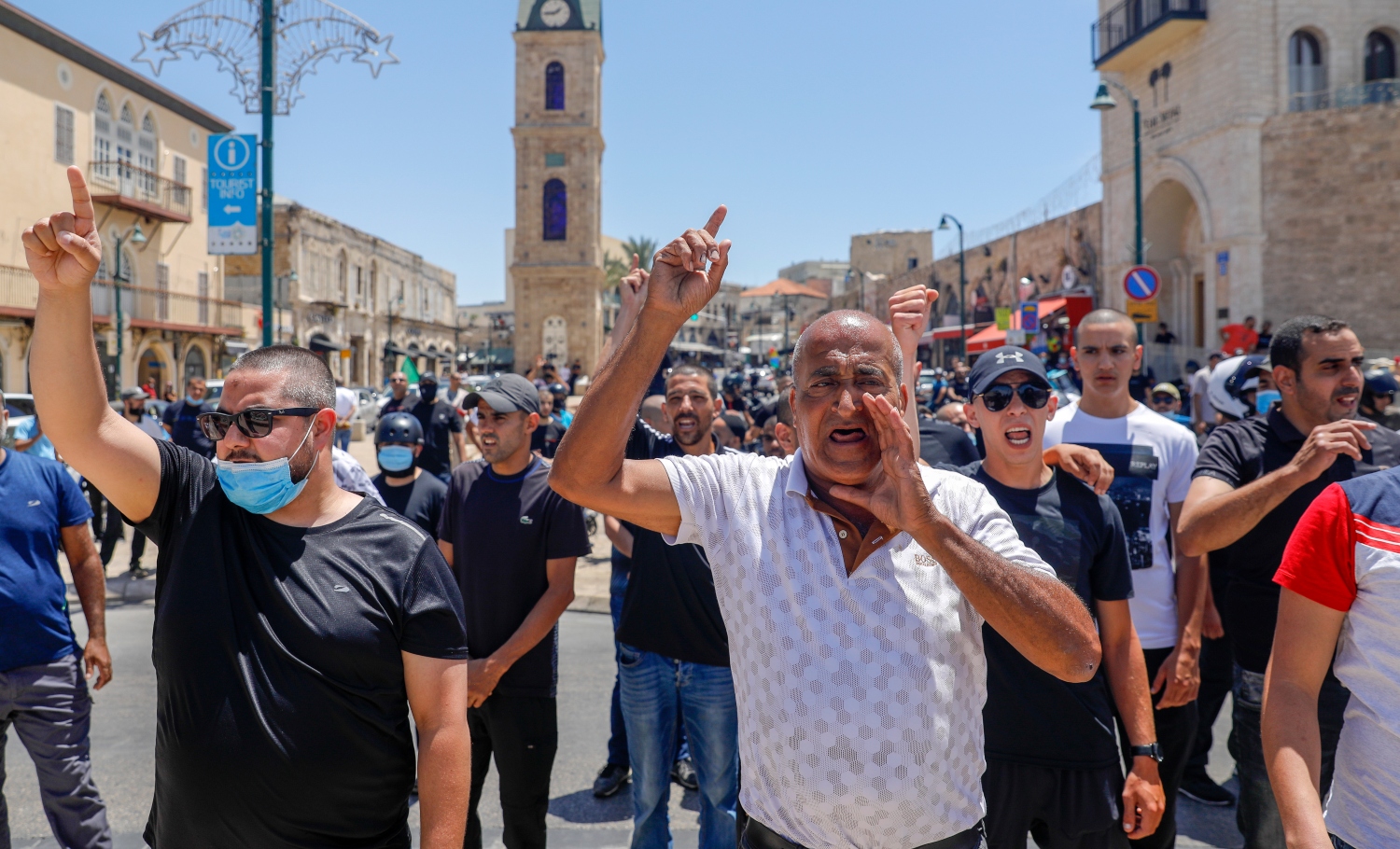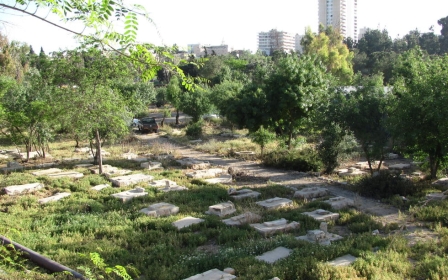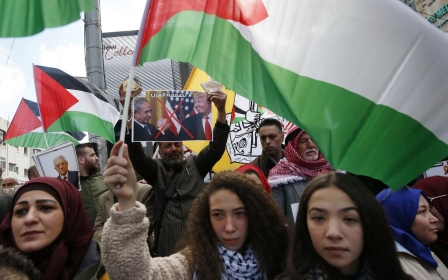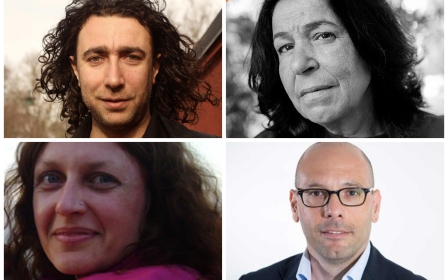Palestinian citizens of Israel protest to save Jaffa cemetery
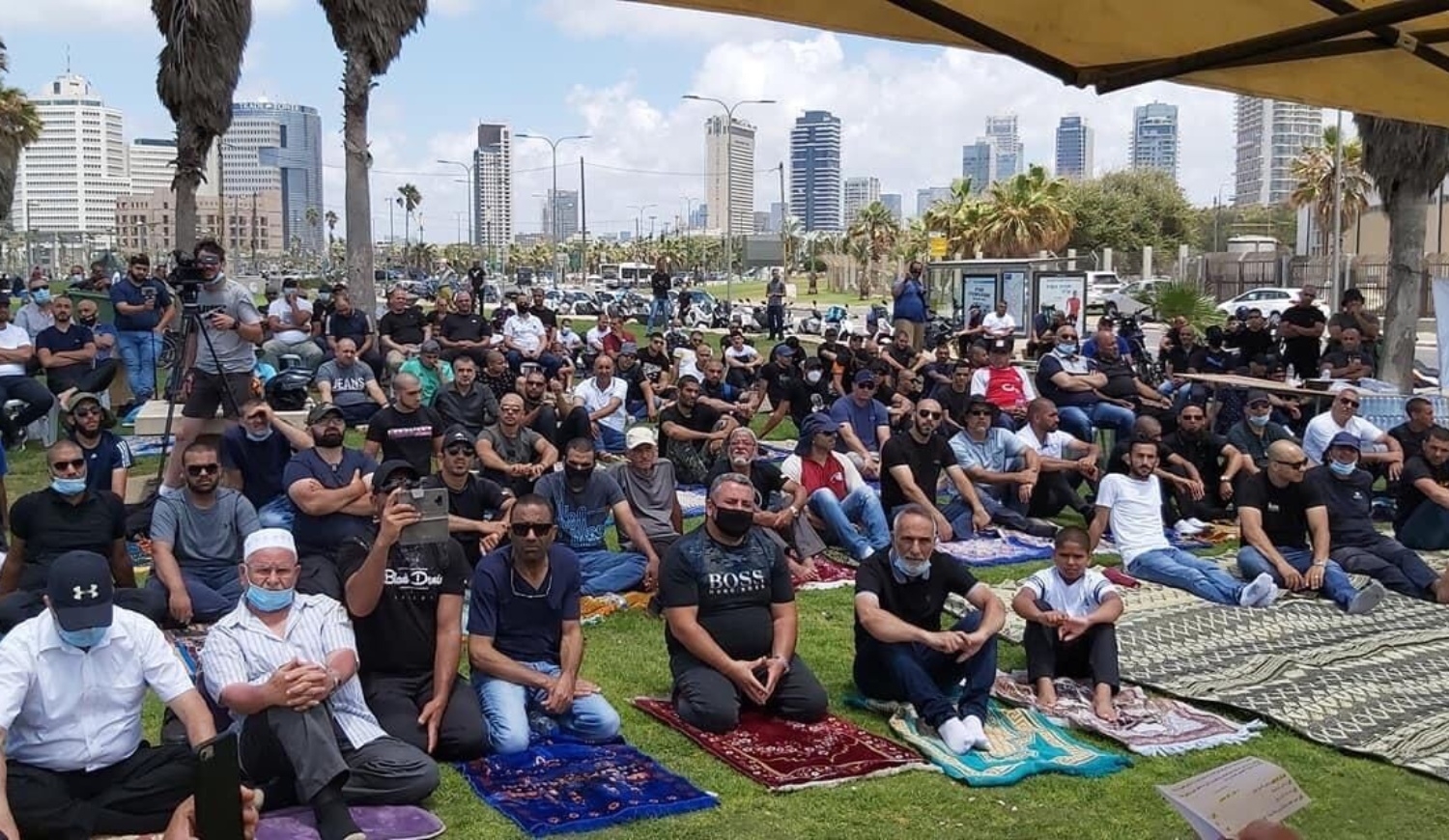
Palestinian residents of the coastal town of Jaffa protested on Friday as part of a campaign against Israeli plans to raze a nearly 200-year-old Muslim cemetery in order to build a homeless shelter in its place.
Jaffa's Islamic Council filed a legal case claiming that the Tel Aviv municipality - which has jurisdiction over Jaffa - did not have a valid permit to build over Al-Isaaf cemetery.
On Wednesday, an Israeli court ruled that construction of the homeless shelter be halted until a hearing on 22 July.
The temporary reprieve came after weeks of protests, during which Jaffa's Old City was cordoned off by Israeli forces who detained and beat Palestinian citizens of Israel protesting the construction as yet another attempt to erase Palestinian heritage.
Developing Jaffa at the expense of Palestinians
New MEE newsletter: Jerusalem Dispatch
Sign up to get the latest insights and analysis on Israel-Palestine, alongside Turkey Unpacked and other MEE newsletters
Abd al-Qader Abu Shehadeh - a former member of the Jaffa municipal council who resigned over the fate of the cemetery - told Middle East Eye that issues surrounding the Al-Isaaf cemetery, officially under the custodianship of Jaffa's Islamic endowment, started in 2018.
The Palestinian activist said he had told the Tel Aviv municipality - which is considered left-leaning within the Israeli political scene - to respect the feelings of Jaffa's Palestinian community on the matter, but that it did not respond.
“What is left of al-Isaaf cemetery is 600 square metres," Abu Shehadeh said. "They could have abandoned the project."
Ahmed Abu Ajweh, the imam of Jaffa's Hassan Bek mosque, said that he was beaten by Israeli police during recent protests.
“The Israelis used the Yasam (police) special forces to attack us and fired stun grenade and tear gas," he told MEE. "They sprayed pepper spray at my mouth [and] eyes to harm me physically. I could not breathe properly and I was taken by an ambulance to the hospital."
Abu Shehadeh said that the cemetery was now closed to the public, with police stationed outside to prevent people from getting in.
“Almost 17 people were arrested because they tried to stop the digging in the cemetery. We called archaeologists to report what’s happening, and we managed to stop them. But they insisted on resuming the digging and have told us that we can transfer the bones of the dead if we want,” Abu Shehadeh said.
Abu Ajweh said that Israel treats its Palestinian citizens - who make up some 20 percent of the country's population - as a “fifth column”, adding that Jewish-Israeli politicians “incite against them regularly”.
Palestinian citizens of Israel have long expressed their grievances over issues ranging from discrimination in employment, housing, infrastructure and policing, in addition to pervasive racist rhetoric.
Protecting Palestinian heritage
Jaffa was once an epicentre of the Palestinian economy, with some 120,000 people living in and around the flourishing city on the Mediterranean Sea in 1948.
Almost 95 percent of the Palestinian population of Jaffa and its surrounding villages were expelled by Zionist militias during the Nakba that year. Over the decades, Jaffa’s historic neighbourhoods were progressively demolished, as the city shrank into a small town, which was then absorbed by the municipality of Tel Aviv.
Al-Isaaf cemetery, which lies just north of the walls of Old Yaffa near the Hassan Bek mosque, was built almost 200 years ago. Despite not being in active use for nearly 90 years, the cemetery nonetheless holds hundreds of Palestinian tombs.
“In the name of developing Jaffa, the Israelis have erased Jaffa’s Palestinian face. Buildings were demolished to develop the city, even trees hundreds of years old were cut down,” he said.For Abu Shehadeh, the plans to raze al-Isaaf are part of broader efforts by Israeli authorities to stamp out Palestinian history and heritage in the town.
Abu Ajweh agreed.
“Tens of Palestinians and Arab cemeteries have been demolished in Jaffa," he explained. "The Hilton Hotel was built over the cemetery of Abd al-Nabi village. Tel Aviv University parking lot was built over the cemetery of the village of Sheikh al-Muwannis village."
Other prominent cases of Palestinian cemeteries being bulldozed in recent years include the Mamilla cemetery in Jerusalem, over which a museum of Jewish tolerance is in the process of being built.
"The Isaaf cemetery is part of this process to remove any traces of Palestinian Muslims and Christians and to change the identity of the country,” Abu Ajweh said.
For Abu Shehadeh, protecting Palestinian cemeteries - regardless of religion - is an integral part of the struggle with Israeli authorities.
“My grandfather has protested to keep Abdel Nabi cemetery, as did my father to protect Tasso cemetery. This struggle holds a big part of our memory,” he said.
“If these graves and cemeteries belonged to Jews in Europe, there would be an uproar," Abu Ajweh said. "This is the policy of occupation. Cemeteries are telling evidence of the identity and history of the land.”
Middle East Eye delivers independent and unrivalled coverage and analysis of the Middle East, North Africa and beyond. To learn more about republishing this content and the associated fees, please fill out this form. More about MEE can be found here.


